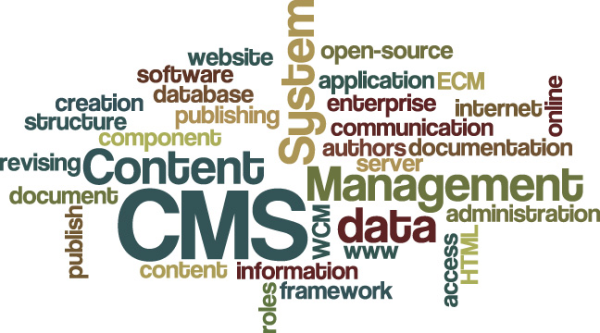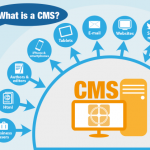
How to choose the right CMS for your Website
What is CMS, how does it works?
One of the most commonly used web development tools today is a content management system (a.k.a. CMS). This is a web application that allows you to update your website quickly. Typically,  there’s an admin area that’s referred to as the back-end where these updates and any changes occur. Once published, these things are then displayed on your website’s front end.
there’s an admin area that’s referred to as the back-end where these updates and any changes occur. Once published, these things are then displayed on your website’s front end.
Reasons to Use a CMS
There are many reasons why you should use a CMS, but the most important reason is that it offers a user-friendly interface with which you can easily add and edit your website’s content. You’ll also discover many plugins that you can use.
Most of the plugins are easy to search down and install too. It’s important to know which of these you’ll need before deciding upon a CMS to use. Doing this in the beginning ensures that you’re as productive as possible because the correct tools are right at your fingertips. While this will require you to spend some time doing research, it will save you a lot of money in the future.
Once you’ve decided whether you’re building a blog, eCommerce site, or website and have started in on your research, you should reach out to some CMS online communities for help. Therein you’ll find folks that know both the advantages and disadvantages of the various options available.
One of the main disadvantages that you’ll oftentimes hear about when discussing a “free” open source CMS is the lack of technical support, which is why many of these CMS communities have sprung up in the first place. They are there to offer help with technical problems, as well as support when necessary. The most popular open source CMS communities are quite large. Therein you’ll find people who will help you regardless of how much experience you may or may not have.
Reviewing the Most Popular CMS Available Today
There’s a growing demand for these CMS today. As such, it should come as no surprise that there are dozens of them available for you to choose from. Since this can make your choices seem a bit overwhelming, here is a brief overview of the most popular systems:
- WordPress is the most commonly used CMS today. First released in May 2003, now more than 14.7% of Alexa’s “Top 1 Million” websites are using it. There are a lot of plugins and extensions available that you can easily integrate from your Admin panel. Many of WordPress’ users have joined together in active communities throughout the worldwide web.
- Drupal is also quite popular because it’s so powerful. First released in 2001, today about 2.1% of all websites are using it. There are a lot of free extensions and modules that you can use with Drupal. Many of these you’ll learn about in the large online community that has formed to discuss technical issues and support one another in the use of this CMS.
- Magento is also very powerful. Their free version is known as “the Magento Community Edition.” It was first released in 2008 and since then it’s quickly become one of the most popular choices for eCommerce websites. Over the years, there’ve been a lot of extensions created to add more functionality and features to this CMS. Of course, it too has a large open community that’s actually full of both certified and uncertified developers alike.
- OpenCart is newer in the marketplace, but it’s quickly becoming popular. It’s a simple CMS whose Admin panel is easy to use, and for which there are a lot of extensions that give you more website functionality. There’s also a large online support community available.




